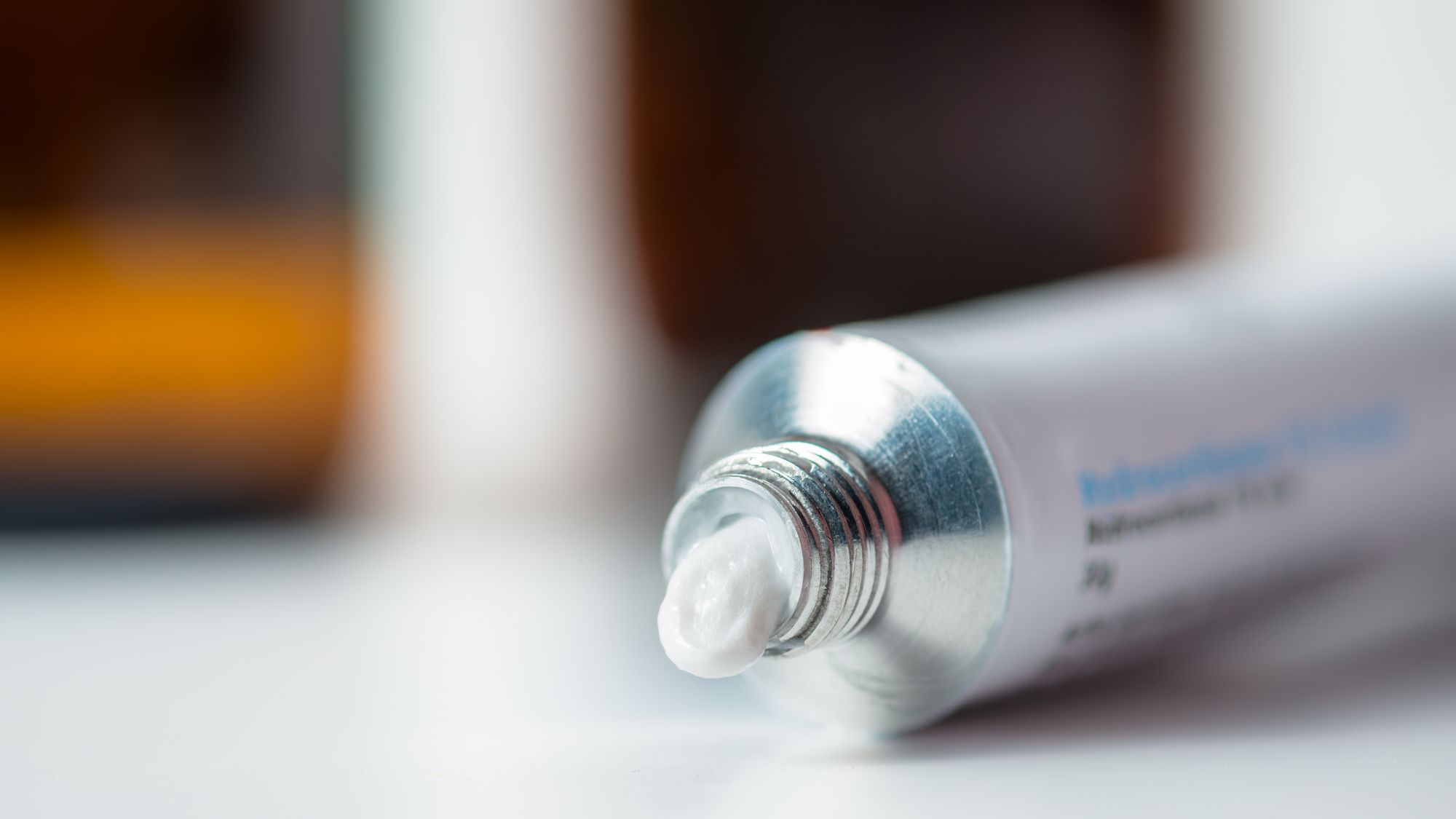Beauty Buffs Are Obsessed With Prescription Skincare—Here’s What You Need to Know Before Buying In
As ever, caution is key


Celebrity news, beauty, fashion advice, and fascinating features, delivered straight to your inbox!
You are now subscribed
Your newsletter sign-up was successful
If you’re wondering where skincare is heading, the answer has arrived: prescription skincare. It makes sense, right? It's the logical step after years of trends that have nudged us towards stronger actives, clinical innovation and greater education.
Of course, celebrities and the rise of skin influencers have played a major role in pushing prescription skincare into mainstream consciousness. Hailey Bieber has openly talked about her use of tretinoin and other prescribed staples across her socials, citing them as key components of her “glazed” skin.
And the appetite is huge. Everyone is keen to supercharge their routine, quickly and efficiently. Statista projects the global prescription skincare market will reach $19.6 billion by 2032. How the product feels, and glossy marketing alone are no longer satisfying—people want results and the scientific evidence to back it.
Skin + Me helped to pave the way early on, making prescription formulas accessible to anyone, without costly dermatology appointments. “We designed our online consultation service to gather all of the information you’d share in a face-to-face appointment with a dermatologist, but in a quick and easy online questionnaire… Finally removing all of that guesswork and trial and error for the consumer,” states co-founder Rachel Jones.
Consultant Dermatologist, Dr Sidra Khan, says that this new strain of prescription skincare has "blurred the line between medicine and beauty, challenging the dominance of marketing-led claims." And she's correct, the model has worked. In the past few years, more brands and digital platforms have launched similar services to Skin + Me, and consumers have become louder about wanting science over clever branding. "Patients are now far more informed and want skincare that’s backed by science rather than marketing hype," comments Dr Naomi Mackle, founder and medical director of Adare Dermatology. "They are, in turn, seeking out these prescription-grade skincare ingredients to include as part of their daily routine."
However, Dr Mackle is quick to stress that the term is often stretched far beyond its meaning: "Very few brands are truly prescription-only. The term ‘prescription skincare’ is often used as clever marketing. What really matters is the formulation, concentration and evidence behind the ingredients, not whether it’s labelled ‘prescription."
A post shared by KLIRA (@kliraworld)
A photo posted by on
We can't ignore the impact of tretinoin on the shift. The prescription-grade retinoid, which helps with acne, texture, discolouration, fine lines and wrinkles, is really the gold standard of retinoids. Dr Emma Craythorne, founder of Klira—a bespoke, prescription-based dermatological skincare line—agrees. "The biggest game-changer in skincare is moving from over-the-counter retinoids to prescription retinoids—this shift makes a significant difference."
Celebrity news, beauty, fashion advice, and fascinating features, delivered straight to your inbox!
In fact, Klira reflects where the market is heading: personalisation, potency, and that much-coveted high-end experience. After a consultation with a dermatology nurse, Klira prescribes tailored blends designed to meet your needs and to ensure that the resulting blend works with your specific skin type.
However, the term "prescription skincare" is also being used to describe ordinary, everyday skincare. "Prescription" can be used loosely and strategically, and can extend to products you can buy at your local drugstore. As Dr Mackle puts it: “True prescription skincare contains active ingredients that are classified as medicines. Many so-called ‘prescription’ skincare lines available online aren’t actually medical at all. High-performing cosmeceuticals can be just as effective when they’re well formulated.” As always, the label means nothing without expertise guiding how to use it.
And remember, going digital is not always the answer. "Patients can get expert input quickly for conditions like acne or rosacea, but convenience should never replace proper medical care or safety checks,” adds Dr Mackle. "Digital consultations are brilliant for common issues; anything uncertain still needs an in-person assessment. And potent ingredients require oversight: Tretinoin, hydroquinone or steroids should never be used without medical guidance.”
In the UK, this guidance is built in because these ingredients legally require a prescription. Elsewhere, the rules are looser. Social media is full of people stocking up on high-strength tretinoin in Turkey or Thailand without speaking to a doctor or having anyone to contact when and if something does go wrong.
With this shift, it’s easy to see a world where beauty becomes over-medicalised, but Dr Sidra Khan argues that there is a balance to strike. "Skin health is both medical and emotional. Evidence-based routines and self-care aren't opposites; when done well, they support one another. The connection between our skin and mind is well known.”
Greater access is a good thing. More choice is a very good thing, but bypassing medical expertise in the hope of fast results? Not so good. The horror stories—chemical burns, months-long inflammation, barrier collapses—are a reminder that “stronger” isn’t always better. The main takeaway? Proceed with caution, always.

Zeynab Mohamed is a London-based freelance beauty and lifestyle journalist whose work explores the intersection of identity, culture, and the ever-evolving beauty landscape. She began her career on the beauty desk at British Vogue and has since written for a range of titles including Dazed, ELLE, Who What Wear, and Stylist. Her writing often examines how beauty trends both reflect and shape the world around us, particularly how they impact women. She also pens Face Value, her Substack newsletter, where she takes a more personal perspective on the way beauty touches our everyday lives.